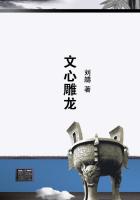He admits, for instance, that the price of corn does not only consist of v + s, but also of the price of the means of production consumed in the production of corn, hence of a capital-value not invested in labour-power by the farmer. But, he says, the prices of all these means of production resolve themselves into v + s, the same as the price of corn. He forgets, however, to add: and, moreover, into the prices of the means of production consumed in their own creation. He refers us from one branch of production to another, and from that to a third. The contention that the entire price of commodities resolves itself "immediately" or "ultimately" into v + s would not be a hollow subterfuge only if he were able to demonstrate that the commodities whose price resolves itself immediately into c (price of consumed means of production) + v + s, are ultimately compensated by commodities which completely replace those "consumed means of production," and which are themselves produced by the mere outlay of variable capital, i.e., by a mere investment of capital in labour-power. The price of these last commodity-products would then be immediately v + s. Consequently the price of the former, c + v + s, where c stands for the constant part of capital, would also be ultimately resolvable into v + s. Adam Smith himself did not believe that he had furnished such a proof by his example of the collectors of Scotch pebbles, who, according to him 1) do not generate surplus-value of any description, but produce only their own wages, and 2) do not employ any means of production (they do, however, employ them, such as baskets, sacks, and other containers for carrying the pebbles).
We have already seen above that Adam Smith himself later on overthrows his own theory, without however being conscious of his contradictions.
But their source is to be found precisely in his scientific premises. The capital converted into labour produces a greater value than its own. How?
Says Adam Smith: by the labourers imparting during the process of production to the things on which they work a value which forms not only an equivalent for their own purchase price, but also a surplus-value (profit and rent)apportioned not to them but to their employers. That is all they accomplish, and all they can accomplish. And what is true of the industrial labour of one day is true of the labour set in motion by the entire capitalist class during one year. Hence the aggregate mass of the annual value produced by society can resolve itself only into v + s, into an equivalent by which the labourers replace the capital-value expended for the purchase of their own labour-power, and into an additional value which they must deliver over and above this to their employers. But these two elements of commodity-value form at the same time sources of revenue for the various classes engaged in reproduction: the first is the source of wages, the revenue of the labourers;the second that of surplus-value, a portion of which is retained by the industrial capitalist in the form of profit, while another is given up by him as rent, the revenue of the landlord. Where, then, should another por-tion of value come from, when the annual value-product contains no other elements than v + s? We are proceeding here from ****** reproduction.
Since the entire quantity of annual labour resolves itself into labour needed for the reproduction of the capital-value laid out in labour-power, and into labour needed for the creation of surplus-value, where should the labour for the production of a capital-value not laid out in labour-power come from?
The case is as follows:
1) Adam Smith determines the value of a commodity by the amount of labour which the wage-labourer adds to the subject of labour. He calls it literally "materials," since he is dealing with manufacture, which itself is working up products of labour. But this does not alter the matter. The value which the labourer adds to a thing (and this "adds" is the expression of Adam Smith) is entirely independent of whether or not this object to which value is added had itself any value before this addition. The labourer therefore produces a value in the form of a commodity. This, according to Adam Smith, is partly an equivalent for his wages, and this part, then, is determined by the magnitude of value of his wages; depending on that magnitude he has to add labour in order to produce or reproduce a value equal to that of his wages. On the other hand the labourer adds more labour over and above the limit so drawn, and this creates surplus-value for the capitalist employing him. Whether this surplus-value remains entirely in the hands of the capitalist or parts of it are yielded by him to third persons, does not in the least alter either the qualitative (that is at all surplus-value) or the quantitative (magnitude) determination of the surplus-value added by the wage-labourer. It is value the same as any other portion of the value of the product, but it differs in that the labourer has not received any equivalent for it, nor will receive any later on, in that, on the contrary, this value is appropriated by the capitalist without any equivalent. The total value of a commodity is determined by the quantity of labour expended by the labourer in its production; one portion of this total value is determined by the fact that it is equal to the value of the wages, i.e., an equivalent for them. The second part, the surplus-value, is, therefore, necessarily likewise determined as equal to the total value of the product minus that part of its value which is equivalent to the wages; hence equal to the excess of the value produced in the ****** of the commodity over that part of the value contained in it which is an equivalent for his wages.















